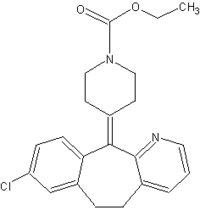WASHINGTON -- By substituting a generic for a brand name drug, the U.S. Air Force expects to save about $12 million annually.
For the first time in its history, the medical operations director of the U.S. Air Force directed every one of its 75 base pharmacies worldwide to dispense generic loratadine in place of the prescription allergy drug Allegra (fexofenadine HCl, Aventis Pharmaceuticals). Previously, substitutions were left to each individual base pharmacy depending on what they wanted to carry on their formularies.
"We have dispensed generics for years Air Force-wide," Lt. Col. David Bobb, deputy director for medical support policy and operation with the U.S. Air Force, told Drug Store News. "The most recent written guidelines came out in November 1999 that say Air Force pharmacies may use U.S. Food and Drug Administration-approved generics to substitute for brand name drugs. This is something we've been doing for a long time.
But in July, Bobb said, a new policy was issued that mandated that patients on Allegra be switched to generic loratadine if no other mitigating factors are involved.
"The one thing that's a little unusual is this is the first time that something was directed to all of our Air Force pharmacies from Air Staff [medical headquarters for the Air Force]," Bobb said. "It's also influenced by the Department of Defense Pharmacy and Therapeutics Committee. They dictate some things that must be on every formulary. This is the first time it's been to dispense a certain product."
Bobb said the Air Force could buy generic loratadine for less than one-tenth of what it was paying for prescription Allegra. However, when the substitution policy was issued in July, it allowed patients to fill one additional 30-day supply of Allegra before switching to a generic loratadine. Exactly how much the Air Force will save from this point on only now is becoming apparent.
"We're just starting to get the real data in," Bobb said. "It took us until about the middle of August to see a change. For a ballpark figure, just making that one change, we expect to see about $3 million in savings per quarter."
Loratadine also became available over-the-counter in prescription strength after Schering-Plough's Claritin and Wyeth Consumer Healthcare's Alavert went OTC in December 2002.
Between the two, almost $190 million in incremental dollar sales were added to the drug store channel in 2003, marking a true growth in the category rather than merely a shift from one brand to another.
The channel also saw a $55.7 million incremental lift provided by private label allergy products, the majority of which was attributed to loratadine.
COPYRIGHT 2004 Reproduced with permission of the copyright holder. Further reproduction or distribution is prohibited without permission.
COPYRIGHT 2004 Gale Group



